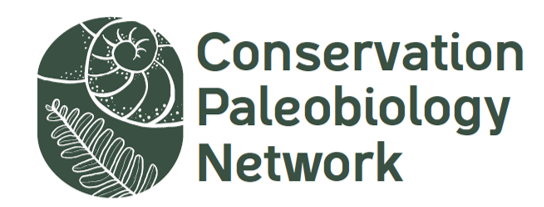Anti-Racism Statement and call for action
June 2020
Opening Statement
The Conservation Paleobiology Network mourns the recent murders of George Floyd, Tony McDade, Breonna Taylor, Ahmaud Arbery and others who have lost their lives to anti-Black violence. We recognize that these incidents are a product of deep rooted systemic, structural and institutionalized racism in the United States. We stand in support of our Black members and affirm that Black lives matter.
We acknowledge the history of discrimination, oppression, and erasure of underrepresented groups in the disciplines that compose our network. It is our responsibility to identify inequities in our respective fields and in our network and act to effect change.
The CPN launched in Spring 2020, and is in the initial planning stages. We are taking steps to address issues regarding systemic racism, equity, inclusion, and accessibility by establishing a Diversity, Equity, and Inclusion panel to advise our network planning team. However, we know that there is still much more we can do as we move forward. As part of our governance structure, the DEI panel will ensure that Diversity, Equity, and Inclusion remain core values throughout the duration of the network’s existence that are woven into the fabric of all the RCN’s operations. Below we list our short-term actions that we intend to implement immediately, as well as our longer-term goals that we aim to implement as our network grows.
Short-Term Actions
1) Encourage all CPN members as individuals to implement strategies to dismantle systemic biases at their home institutions and participate in recruiting and mentoring people from underrepresented groups. Guidance will be provided to our members as a list of resources on the CPN website: https://conservationpaleorcn.org/resources/
2) Continue recruiting diverse perspectives to CPN leadership positions/panels and be transparent about the selection procedures for these positions.
3) Structure webinars, field courses, working groups and other CPN activities to be equitable and inclusive learning and networking spaces.
4) Amplify diverse voices in the newsletter, social media, and other internal and public-facing communications.
5) Strive to create an inclusive and respectful environment at CPN Annual Meetings through the following actions: a) Provide scholarships for students from underrepresented groups to attend the annual meeting and/or have their registration fees waived. b) Create and enforce a code of conduct for the meeting. c) Rotate the conference location and organize regional or virtual gatherings to increase participation in the face of high travel cost.
6) Make inclusivity a foundation of the field course structure by: a) Including discussion of the social and cultural history of the systems/locations under study (e.g. the history of land ownership) alongside the environmental history. b) Recognizing that fieldwork has historically represented a significant barrier to people of color, yet also strongly correlates with student retention and success, allocating scholarships and mentoring to provide students without field/outdoor experience with a positive, safe, and inspiring introduction to this critical aspect of natural sciences.
7) Ensure that CPN Working Groups foster inclusivity and promote a respectful environment.
Long-Term Goals
1) Diversify the future workforce by recruiting and enabling historically underrepresented students to develop STEM careers in natural sciences through the following actions: a) Develop a mentorship program to support students who join the CPN and collate relevant mentoring resources. b) Create a peer-support network. Pair senior graduate students with undergraduate students and/or early stage graduate students to foster a sense of community, camaraderie, and belonging. c) Highlight paid research opportunities for students and scholarships for minority groups on the CPN resources page. d) Build pipelines through which students and faculty from HBCUs and MSIs can easily become involved to develop and participate in field seminars, webinars and working groups.
2) Develop an ongoing list of field settings in/near disadvantaged communities where CPN research may support environmental justice efforts.
3) Use program evaluations to track progress on recruitment and retention of underrepresented groups and critically engage feedback from these groups to keep us accountable.
Closing Statement
As a newly formed network of conservation scientists, practitioners, stakeholders, and trainees, we will continue our ongoing work toward a more diverse, equitable and welcoming community of students, scholars, and practitioners. This document is intended to evolve over time to reflect the growth of the network and changes in the CPN community. If you would like to contribute your thoughts, feedback, and comments regarding the CPN Anti-Racism Statement and Call to Action, please use the following email to contact us: conservationpaleo@floridamuseum.ufl.edu

